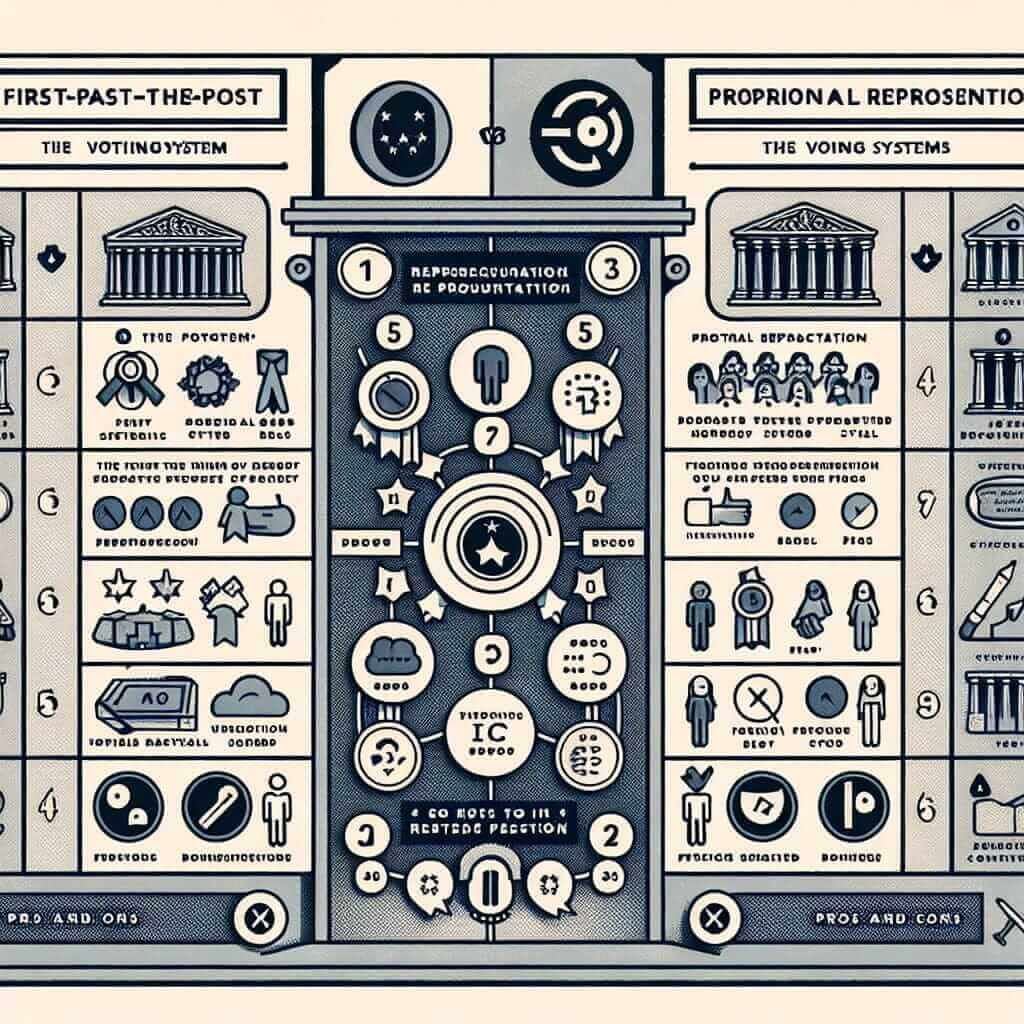As an IELTS instructor with over 20 years of experience, I often get questions from students about tackling potential topics in the Speaking test. One that occasionally pops up is the comparison of different voting systems. While it’s not as frequent as topics like environment or technology, being prepared for any eventuality is key to IELTS success.
Understanding the Scope
It’s important to note that the IELTS Speaking test doesn’t assess your knowledge of political systems. The examiner is primarily interested in your ability to:
- Communicate ideas clearly and fluently: Can you articulate your thoughts on different voting systems, even if you’re not a political science expert?
- Use a range of vocabulary: Can you discuss this topic using words like “proportional representation,” “majority rule,” “electoral college,” etc.?
- Structure your response logically: Can you present a coherent comparison of different systems, highlighting their advantages and disadvantages?
Navigating the “Which is Better” Question
When asked “Which voting system is better,” the key is to avoid absolute statements. There’s no universally “better” system; each has its pros and cons. Instead, focus on:
- Acknowledging Complexity: “That’s a complex question as different voting systems have their own strengths and weaknesses…”
- Comparing and Contrasting: “For example, a first-past-the-post system is simple to understand but might not fully represent minority votes, while proportional representation…”
- Providing Balanced Opinions: “… Ultimately, the ‘better’ system depends on a country’s specific context and priorities.”
Sample Response:
Examiner: Some countries use a first-past-the-post system for elections, while others prefer proportional representation. Which do you think is a better system?
Candidate: Well, that’s a difficult question as both systems have their merits. On one hand, a first-past-the-post system, like we see in the UK, is quite straightforward. The candidate with the most votes in a constituency wins, which is easy for people to grasp. However, it can lead to situations where a party wins a majority of seats without necessarily having the support of the majority of voters overall. On the other hand, proportional representation, which is used in many European countries, aims to reflect the overall distribution of votes more accurately. This can lead to more diverse representation in government but might also result in more fragmented parliaments with many parties, making it harder to form stable governments. So, I’d say there’s no one-size-fits-all answer, and the best system really depends on the specific circumstances of a country.
Tips for Success
- Stay informed: Having a basic understanding of different voting systems will help you speak with more confidence.
- Practice comparison language: Use phrases like “whereas,” “on the other hand,” “in contrast,” etc., to effectively compare and contrast.
- Focus on fluency and coherence: Don’t worry about having in-depth political knowledge. Prioritize clear and organized communication.
Remember, the IELTS Speaking test is about demonstrating your communication skills. By understanding the question’s intent and focusing on clear, well-structured responses, you can confidently tackle any topic, even those outside your immediate expertise.

